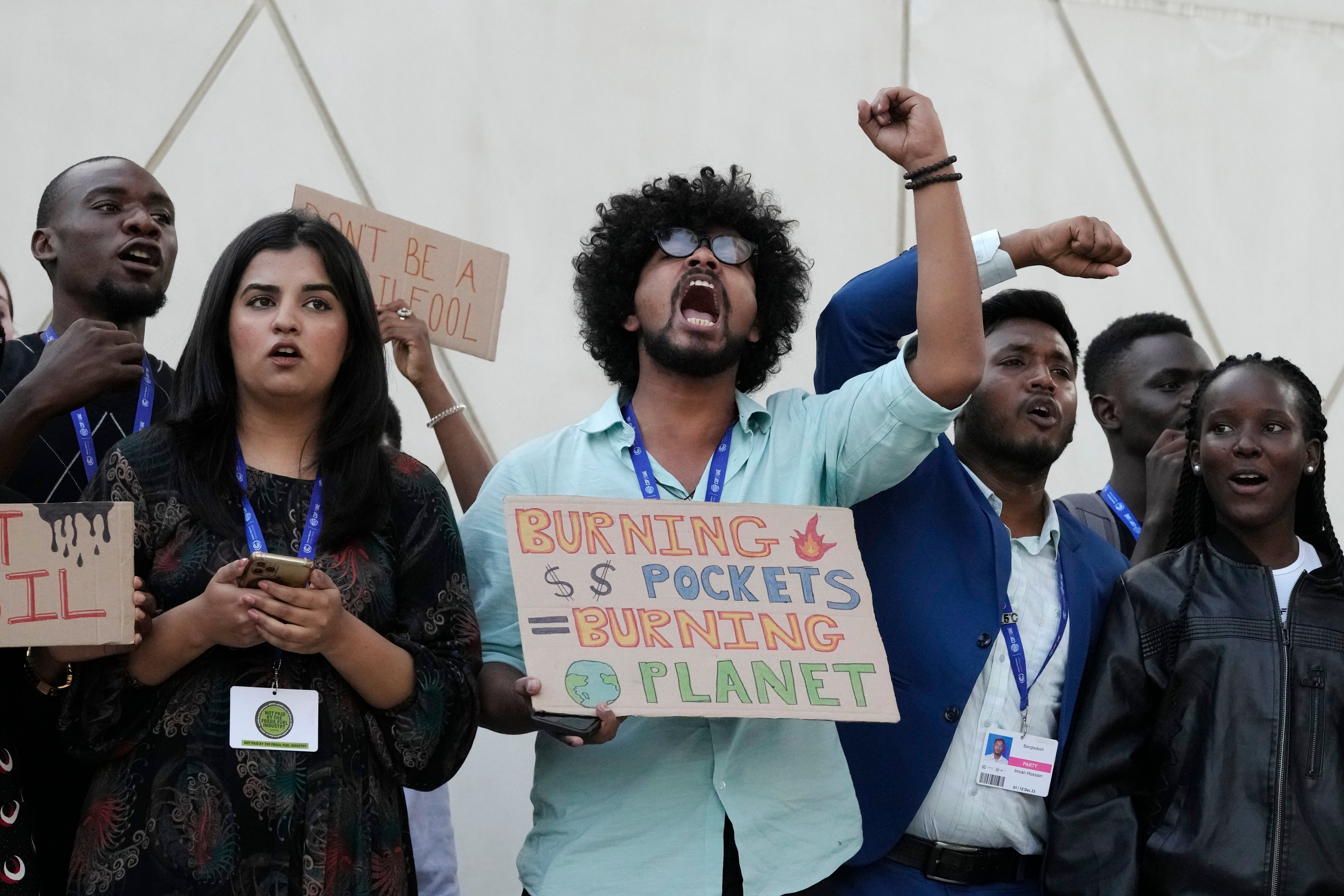As UN climate talks near crunch time, activists plan 'day of action' to press negotiators
Protests aimed at pressuring nations to move decisively to stop climate change were expected to be their most intense yet on Saturday, a “Global Day of Action” with events at United Nations-led talks in Dubai and around the world

Protests aimed at pressuring nations to move decisively to stop climate change were expected to be their most intense yet on Saturday, a “Global Day of Action” with events at United Nations-led talks in Dubai and around the world.
If activists needed any additional energy, they may have gotten it with reports that OPEC's chief had urged its oil-producing members to reject any agreement that targets fossil fuels for a speedy phase-out. It's the central issue as talks head into their final days, as activists and experts have warned that the world must quickly reduce use of the oil, gas and coal that is causing dangerous warming.
Mohamed Adow, director of Power Shift Africa, called the Dec. 6 letter from OPEC Secretary-General Haitham Al Ghais, reported by several news organizations, “shameful” and said “the writing is on the wall for dirty energy.”
“The reality is if the world is going to save itself, it cannot be held back by a small band of countries that control the world’s oil supply,” Adow said in a statement. “Fossil fuels keep power in the hands of the few that happen to have them. Renewables give energy to anyone with a solar panel or a wind turbine.”
OPEC didn't immediately respond to messages seeking comment.
At stake in the final days of COP28 is the language of a key document called the Global Stocktake. It will say how much progress the world had made since the 2015 Paris agreement — where nations agreed to limit warming to 1.5 degrees Celsius (2.7 degrees Fahrenheit) since preindustrial times — and what it has to do next.
New proposed language on how to curb warming released Friday afternoon strengthened the options for a phase-out of fossil fuels that negotiators could choose from. Four of the five options call for some version of a rapid phase-out.
Earlier, Adow had been among environmental advocates who had some qualified optimism about the expanded 27-page draft language.
“The bare bones of a historic agreement is there,” Adow said. “What we now need is for countries to rally behind the stronger of the options and strengthen them further.”
EU countries, some Latin American countries and the small island countries often victimized by climate change are aligned on calling for a phase-out of fossil fuels, negotiators said.
Opposition comes from two groups. One is developing countries like India and Indonesia that think they need fossil fuels to power up their economies. But with financial and other aid, they may be pulled out of that position, said World Resources Institute CEO Ani Dasgupta.
Then there are the countries that are far richer because of oil revenue. The United States is the biggest oil producer in the world and Special Envoy John Kerry earlier this week said the U.S. is committed to supporting strong phase-out language.
Besides protests, Saturday's COP28 schedule is expected to be dominated by speeches from national representatives, typically energy and environment ministers. The conference is scheduled to wrap up Tuesday.
As demonstrators demand more action to prevent climate change from getting too much worse, there's also the issue of how countries can adjust to a warming planet and where the money will come from to adjust to higher sea levels and worsening droughts. A loss and damage fund has received pledges already at COP28, but fewer resources have been made available for adaptation.
___
Associated Press journalist Sibi Arasu contributed to this report.
___
Associated Press climate and environmental coverage receives support from several private foundations. See more about AP’s climate initiative here. The AP is solely responsible for all content.
Bookmark popover
Removed from bookmarks